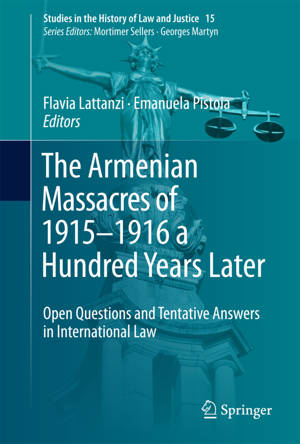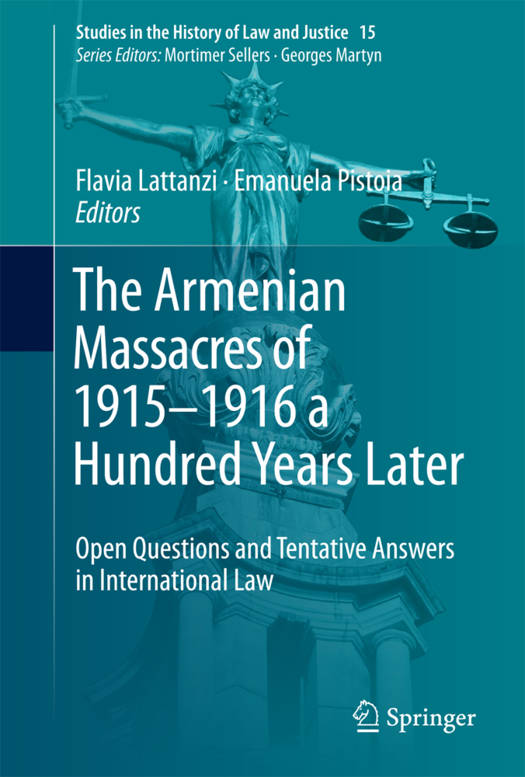
- Afhalen na 1 uur in een winkel met voorraad
- In januari gratis thuislevering in België
- Ruim aanbod met 7 miljoen producten
- Afhalen na 1 uur in een winkel met voorraad
- In januari gratis thuislevering in België
- Ruim aanbod met 7 miljoen producten
The Armenian Massacres of 1915-1916 a Hundred Years Later
Open Questions and Tentative Answers in International Law
Omschrijving
This peer-reviewed book features essays on the Armenian massacres of 1915-1916. It aims to cast light upon the various questions of international law raised by the matter. The answers may help improve international relations in the region. In 1915-1916, roughly a million and a half Armenians were murdered in the territory of the Ottoman Empire, which had been home to them for centuries. Ever since, a dispute between Armenians and Turkey has been ongoing over the qualification of the massacres. The contributors to this volume examine the legal nature and consequences of this event. Their investigation strives to be completely neutral and technical. The essays also look at the broader issue of denial. For instance, in Turkey, public speech on the matter can still trigger criminal prosecution whereas in other European States denial of genocide, war crimes and crimes against humanity is criminalized. However, the European Court of Human Rights views criminal prosecution of denial of the Armenian massacres as unlawful. In addition, one essay considers a state's obligation to remember by looking at lessons learnt from the Inter-American Court of Human Rights. Another contributor looks at a collective right to remember and some ideas to move forward towards a solution. Moreover, the book explores the way the Armenian massacres have affected the relationship between Turkey and the European Union.
Specificaties
Betrokkenen
- Uitgeverij:
Inhoud
- Aantal bladzijden:
- 332
- Taal:
- Engels
- Reeks:
- Reeksnummer:
- nr. 15
Eigenschappen
- Productcode (EAN):
- 9783319781686
- Verschijningsdatum:
- 12/06/2018
- Uitvoering:
- Hardcover
- Formaat:
- Genaaid
- Afmetingen:
- 156 mm x 234 mm
- Gewicht:
- 657 g

Alleen bij Standaard Boekhandel
Beoordelingen
We publiceren alleen reviews die voldoen aan de voorwaarden voor reviews. Bekijk onze voorwaarden voor reviews.








